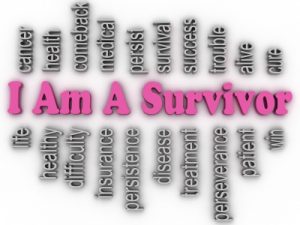Liver cancer, caused by hepatitis B and C, is on the rise in the U.S. and it is also the second deadliest. Fewer than 15 percent of patients with liver cancer will survive five years after their diagnosis. It is the third-leading cause of cancer deaths among Asian-Americans and the eighth-leading cause of cancer deaths among Caucasian-Americans.
Despite this bleak outlook, there are people with liver cancer who are beating the odds and surviving. The medical community is also working hard to develop new drugs and effective strategies to treat liver cancer. Here is one survivor’s story.
By Frank Gardea

In late 2008, during routine testing before surgery, I found out I had hepatitis C and liver cirrhosis. It was a double whammy because having both viral hepatitis and cirrhosis put me at high risk for liver cancer.
Then the abdominal pain started. I suffered for almost three years and was in and out of the emergency department. They could not pinpoint the cause of the pain. When they finally diagnosed my liver cancer, the tumor was over 8 cm in size.
I was of course angry. Why didn’t they catch my cancer earlier? I was hospitalized for over a week and then referred to the oncology department. That’s when they told me, “You have three months to live.”
I was not a candidate for a liver transplant and one of the doctors didn’t even want to give me a referral to a hepatologist because she thought I was too far gone. I went home and binge-watched YouTube videos on liver cancer. I found out that far too often, by the time liver cancer is diagnosed, it’s too late.
Another doctor later referred me to UCLA, one of the top liver cancer centers in the country. At my first appointment at the liver cancer center, I saw Dr. Richard Finn, a leading liver cancer expert, who was part of a team of health care professionals taking care of me. They never once said I was beyond hope.
The following week, the tumor burst and I was admitted to the liver cancer center. I realized I was dying. They did a procedure called TACE that saved my life. I was put on an oral targeted therapy, which, in combination with the TACE, caused the tumor to shrink.
Fulltime Job
Life definitely has changed for me. I had a small company that I had to pretty much shut down. I fell behind on my mortgages but was able to work out agreements to get them modified. Being a patient now became my fulltime job.
I spent most of my time negotiating insurance plans, figuring out medical costs, and going for medical visits. My friends put me on their private insurance plan for two years, and then I got my own insurance through the Affordable Care Act. Without that insurance, I would not have been able to survive.
Staying Positive
It’s hard to stay positive when you know you have a tumor inside you that is killing you. It’s not just financially, but also emotionally draining. I go for mental health therapy because I get so depressed. Being sick, not being as physically active as I want, and coping with the side effects of the drugs can get overwhelming.
Be Your Own Advocate!
The most important thing I have learned is that I have to educate myself about my disease and be prepared when talking with my doctor. I had to become my own advocate, asking questions and being persistent about getting the care I need.
I am not out of the woods yet, but I have a lot to be thankful for. I have now lived three years longer than expected, thanks to my care team. They say I am one of their success stories!
I have joined a cancer support group so I can share my experience. Maybe I can help somebody.
For more information about liver cancer, visit our Liver CancerConnect website getting screened for liver cancer when you have hepatitis B, click here.

